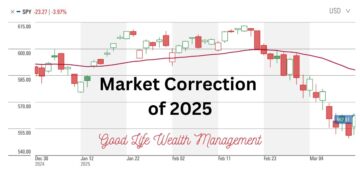Many people significantly underestimate how much income they will need to maintain their lifestyle in retirement. We’re going to point out how people underestimate their needs, explain why a common “rule of thumb” is a poor substitute, and then share our preferred process.
If we begin with the wrong budget, then our withdrawal rates, target nest egg, and portfolio sustainability are all going to be inaccurate, which is very difficult to correct after you’ve retired.
In general, when I ask someone to estimate their monthly financial needs, they use a process of addition. They think of their housing expenses, utilities, taxes, food costs, etc., and try to add those up. Unfortunately, the number many arrive at can be significantly too low, and here’s how I know.
They tell me that they spent $5,000 a month, or $60,000 last year. But I ask how much they made and they tell me $150,000. How much did they save last year? $30,000. To me, that suggests they spent $120,000, not $60,000. If they only spent $60,000, they would have saved more than $30,000. You either spend or save money; if it wasn’t saved it was spent, even if that spending wasn’t discretionary.
Here’s why most people fail with the “addition method” of trying to create a retirement income budget:
- They don’t include taxes. Taxes don’t go away in retirement; pensions, Social Security (up to 85%), and IRA withdrawals are all taxable as ordinary income.
- Unplanned expenses such as home repairs, emergencies, or car maintenance can be substantial and fairly regular, if not consistent or predictable.
- Your health care costs may be much higher in retirement than you anticipate, especially in the later years of retirement.
- You may finally have time to pursue activities which you did not have time for while working, such as travel, golf, or spoiling your grandchildren. With an additional 40 hours a week available, you will likely be spending money in new ways.
Some financial calculators use a rule of thumb that most retirees will need 75% (or 70-80 percent) of their pre-retirement income. This is called the “replacement rate”. And while there have been a number studies that confirm this 75% estimate as an average, its applicability on an individual basis is poor.
We know for example, that lower income people will need a higher replacement rate than higher income people. That’s because the lower income levels may have had a lower savings rate, a smaller proportion of discretionary spending, and little tax savings in retirement. Higher income workers may have been saving more and find significant tax savings in retirement, and therefore have a lower replacement rate.
Instead of trying to use an addition method or a one-size-fits-all rule of thumb, I’d suggest using subtraction:
- Begin with your current income.
- Subtract any immediate savings you will experience in retirement, including: the amount you were actually saving and investing each year, payroll taxes (7.65% if a W-2 employee), and work expenses, if significant.
- Examine your sources of retirement income and if you calculate any income tax reduction, subtract those savings.
- Consider any increases in retirement spending, starting with health care costs and discretionary spending (travel, hobbies, etc.). Add these back to your spending needs.
Unless you are planning to have paid off your mortgage, substantially downsize your house, get rid of a car, or stop eating out, I think most people will initially continue their spending habits in retirement very much the same as they did while they were working. Like everyone else, retirees spend a significant portion of their income on things which they did not want (property tax, income tax, insurance) and on things which were not planned (replacing a roof, medical expenses, etc.).
Underestimating your retirement income needs could lead to some very painful outcomes, such as depleting your nest egg, being forced to downsize, or impoverishing your spouse after you pass away. You have to still plan for occasional expenses, such as replacing a car, home repairs, and emergencies, in a retirement budget.
If you’ve calculated your retirement income needs and your planned budget is significantly less than your pre-retirement income, please be careful. When the number you reached through addition isn’t the same number I reach through subtraction, it’s possible you are not budgeting for some costs which you currently have and are likely to still have in retirement.







